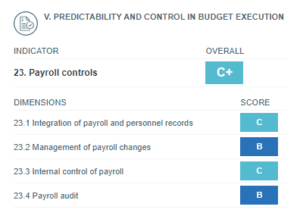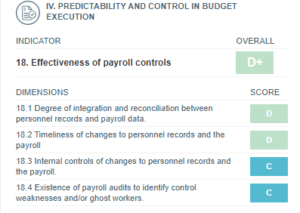In total, Uganda has eliminated almost 14,000 ghosts out of an establishment of a little over 300,000 public servants.
Setting the Standard for Civil Service Management in Africa
Since 2009, the Government of Uganda has used the FreeBalance Accountability Suite™ as an Integrated Personnel and Payroll System (IPPS). Implementation of IPPS was part of the public service reform program aimed at strengthening accountability and improved service delivery through automation of human resource functions and provision of reliable and timely information for decision making. The payroll system manages the entire public service workforce.
Recent upgrades to the IPPS enable automation of all human resource functions and processes, as well as seamless integration with other government systems notably the Integrated Financial Management System (IFMS), the National Security Information System and program-based budgeting.
There are good controls over the size and structure of the Civil Service with establishment changes needing to be approved by Ministry of Public Services (MOPS). The Integrated Personnel and Payroll System reforms and related control disciplines, such as extensive payroll audits of both the payroll and pensions databases and the introduction of biometric ID’s have also contributed to the improvements.
— PEFA assessment report, 2017
Further Reading
- How to improve your country’s PFM rankings
- FreeBalance customers perform better in their PEFA assessments
- Latest World Happiness Report shows that FreeBalance customers outperform the global average
Read more success stories on how we helped governments all over the world improve their fiscal transparency and accountability.
Uganda’s PFM Achievements
Public Expenditure and Financial Accountability (PEFA) Assessment
The Government of Uganda has achieved a significant improvement in their PEFA assessment scores for payroll control over the years. The 2017 assessment noted that payroll functions had improved since the previous study, despite some disruption caused by decentralization policies.


PEFA Assessment 2017 PEFA Assessment 2008
Open Budget Index
The Government of Uganda has achieved an improvement of close to 30% in its Open Budget Index scores and remains well ahead of the global average.


